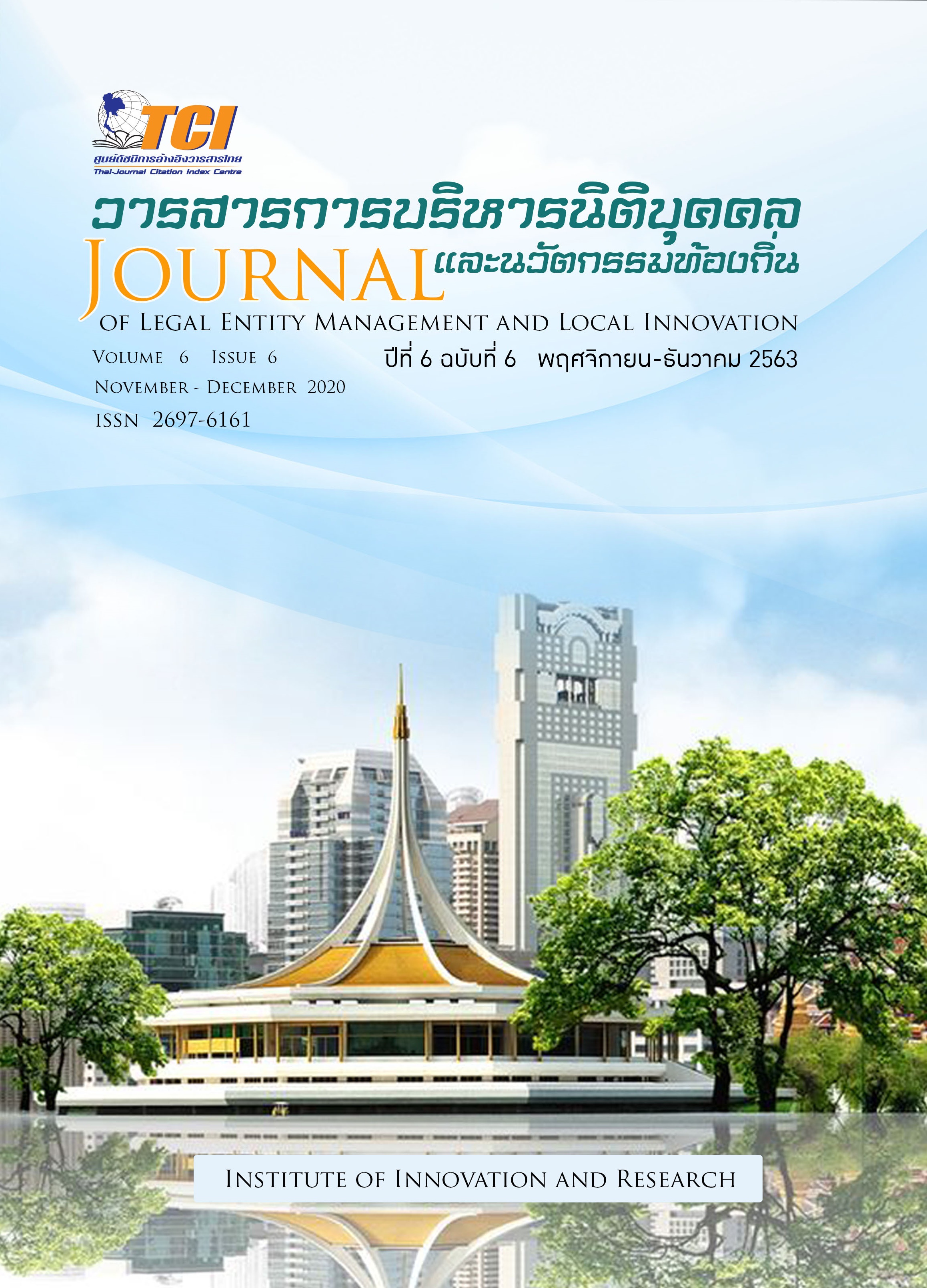Administration of Migrant Labours in Agricultural Sector along Thai-Cambodia Border, Sakaeo Province according to the 64th Legal Measure of Foreigners’ Working Management Emergency Decree B.E. 2560
Keywords:
Migrant Labours in Agricultural Sector, Labour AdministrationAbstract
The objective of this research were as follows: 1) to study the administration of migrant labours in agricultural sector along Thai-Cambodia border, Sakaeo Province, according to the 64th legal measure of Foreigners’ Working Management Emergency Decree B.E. 2560; 2) to study factors affecting the administration of migrant labours in agricultural sector along Thai-Cambodia border, Sakaeo Province according to the 64th legal measure of Foreigners’ Working Management Emergency Decree B.E. 2560; and 3) to determine approaches for development on migrant labours administration in agricultural sector along Thai-Cambodia border, Sakaeo Province, according to the 64th legal measure of Foreigners’ Working Management Emergency Decree B.E. 2560 , the researchers used qualitative research by using documentary studies and analyzing data form authentic and creditable documents by data triangulation, typology, and content analysis, respectively. The results of the study found that: Administration of migrant lobours in agricultural sector along Thai-Combidia boder of Sakaeo implements form policies, laws, and legal measures related to working of day-trippers and/or seasonal migrant labours. Then, provincial administrations apply government policy into migrant labour administration processes including imported migrant labours process and controlling migrant labours process, which public and private sectors participate in both processes. However, administrations of migrant labours in agricultural sector along Thai-Cambodia border of Sakaeo facade with many problems including policy decision making and implementation process. Then, development approaches for migrant labour administration in agricultural sector along Thai-Cambodia border of Sakaeo are that: (1) improvement for legal understanding of employers, employment agencies, and migrant workers (2) increasing the liability for state officers who corrupton their duties (3) promoting on technological investments for reducing both costs and labour-intensive (4) developing on migrant labour administration processes and (5) concerning on human rights of migrant workers.


